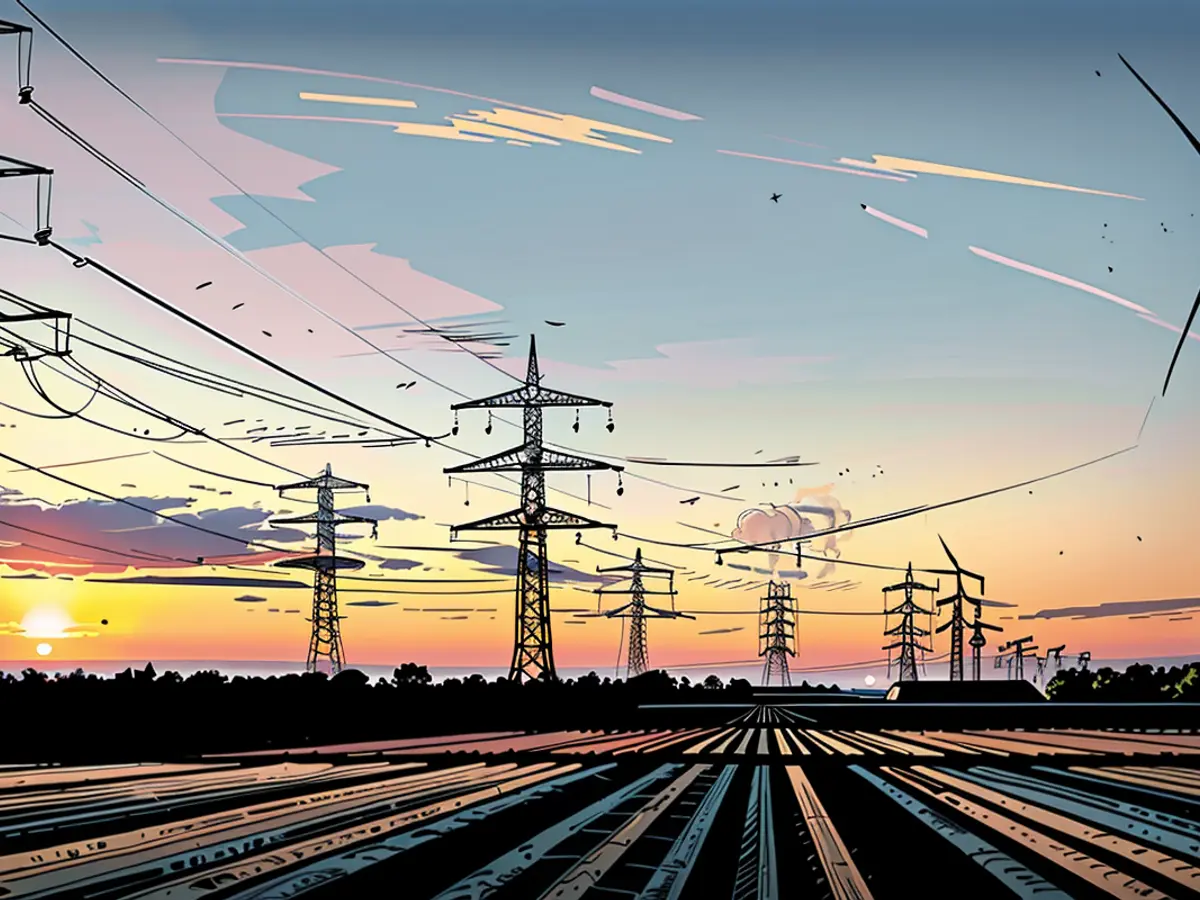Energy transition - Federal government wants to expand power lines faster
The German federal government, according to the Economic Ministry's statements, plans to significantly accelerate the expansion of power grids. This will involve bringing forward the construction of several power lines, as the ministry announced to dpa on Saturday. Previously, the "Augsburger Allgemeine" had reported on the planned change to the so-called Federal Requirements Planning Act, which is to be passed in the Bundestag on the coming Friday.
Power should reach the South and West faster
The main goal of the change is to enable future faster transport of the power produced in northern Germany to the South and West of the country, FDP energy politician Lukas Köhler told dpa on Saturday. The change concerns two routes that are to be built faster: the so-called Nord-Ost-Link, which transports power from Schleswig-Holstein to Mecklenburg-Vorpommern, and the Rhein-Main-Link. The Rhein-Main-Link will help transport power from Lower Saxony to the South more effectively.
"Only through a quick expansion of the power grids can we achieve a secure power supply at affordable prices," emphasized FDP parliamentary group vice chairman Köhler. It is "absolutely right" to build these two new routes as quickly as possible.
Green Party also in favor
Ingrid Nestle, spokesperson for energy and climate protection in the Green parliamentary group, told dpa: "We will all benefit strongly from the power grid expansion." With the new high-voltage lines, above all cheaper offshore wind power in southern Germany and "to industrial centers" will be directed. "We reduce costs that arise from the use of more expensive fossil power plants."
Law to be "starting shot for construction"
In the corresponding draft law of the coalition, it says: "Given the current regional imbalance between energy production and energy consumption, it is necessary to transport power over long distances." By bringing forward the projects, "bottlenecks in the power supply within the German grid" are to be eliminated.
Exactly when the construction of the routes can begin depends on the plans of the Federal Network Agency and the transmission network operators. Once the law is passed, however, it will be the "starting shot for construction," emphasized FDP parliamentary group vice chairman Köhler.
Draft law Bundesbedarfsplanungsgesetz
- The Bundesbedarfsplanungsgesetz, as reported by the "Augsburger Allgemeine", is set to be passed in the Bundestag on Friday, accelerating the expansion of power grids according to the German Federal Government's plans.
- Lukas Köhler, an FDP energy politician, emphasized that only a quick expansion of power grids can ensure a secure power supply at affordable prices, mentioning the Nord-Ost-Link and Rhein-Main-Link as crucial projects.
- The Rhein-Main-Link, a route under consideration, will help transport power from Lower Saxony to the South more effectively, contributing to the desired energy transition in Germany.
- The Federal Government's announcement to bring forward the construction of several power lines has been welcomed by the Green Party, with Ingrid Nestle stating that reducing costs through cheaper offshore wind power in southern Germany and industrial centers is a major benefit.
- The draft law, once passed, will serve as the "starting shot for construction" according to Köhler, emphasizing the significance of the law in advancing Germany's power grid expansion plans.
- The energy transition in Germany requires eliminating bottlenecks in the power supply within the German grid, as stated in the draft law of the coalition, highlighting the necessity of transporting power over long distances.
- Newspapers like the "Augsburger Allgemeine" have been closely following developments in Germany's power grid expansion, demonstrating the widespread interest in the country's ambitions to improve its power line infrastructure as part of the energy transition.








